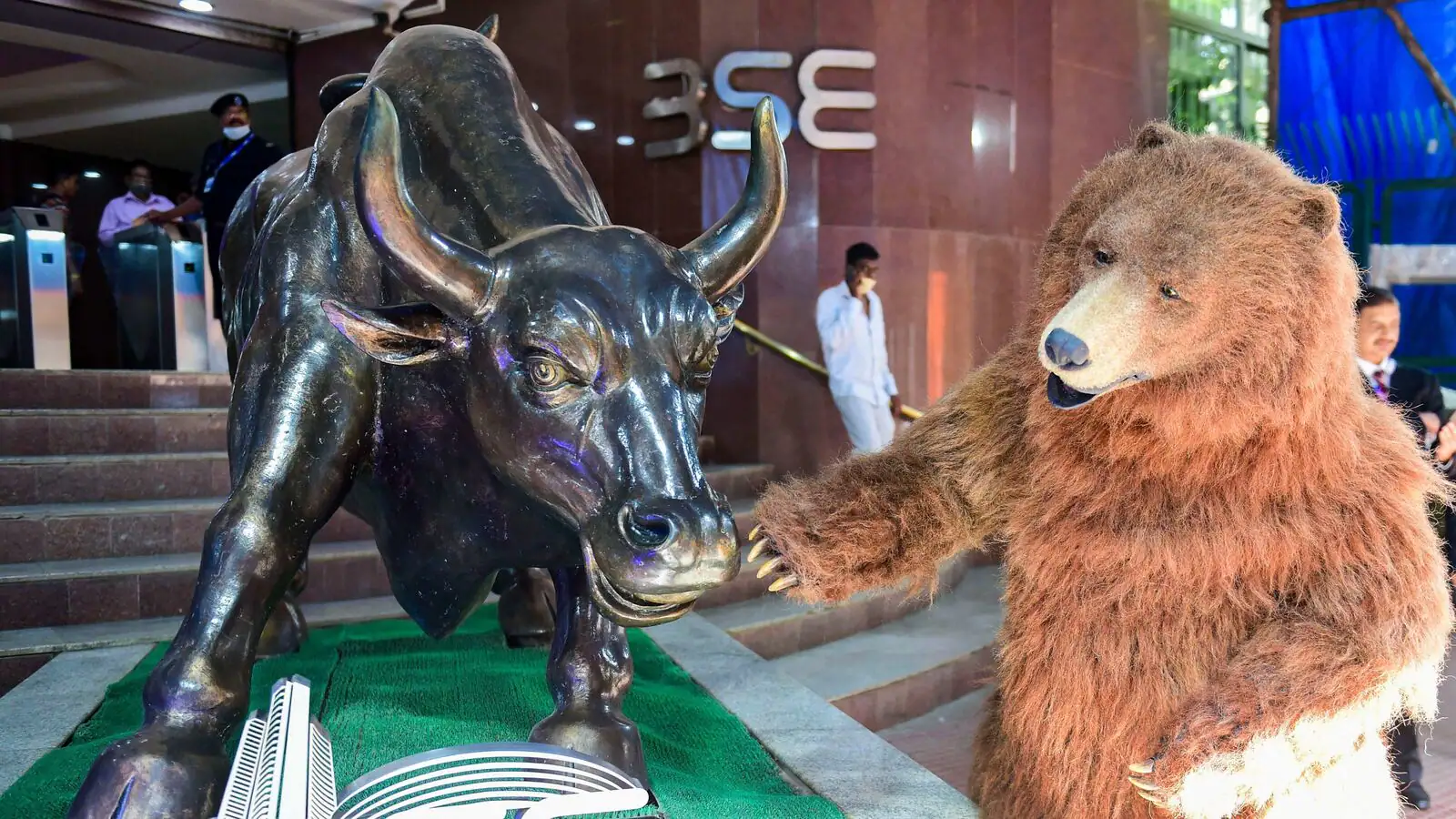What Is the Bombay Stock Exchange (BSE)?
Founded in 1875 as the Native Share and Stock Brokers’ Association, the Bombay Stock Exchange (BSE) is the biggest and oldest securities market in India. Together with the New York Stock Exchange (NYSE), Nasdaq, London Stock Exchange Group, Japan Exchange Group, and Shanghai Stock Exchange, the BSE, which is based in Mumbai, India, is one of the biggest exchanges in the world and lists almost 6,000 companies.
The BSE has contributed to the expansion of the Indian corporate sector as well as the development of the country’s capital markets, particularly the retail debt market. In addition to being the first stock exchange in Asia, the BSE offers small and medium-sized businesses (SME) a platform for trading stocks. BSE has expanded into offering risk management, clearing, and settlement, among other capital market services.
How Bombay Stock Exchange (BSE) Works?
The BSE made the transition from an electronic trading system to an open-floor system in 1995. In the United States alone, there are over a dozen electronic exchanges; the most well-known ones are the Nasdaq and the New York Stock Exchange (NYSE).
Today, electronic trading systems dominate the financial industry overall, offering fewer errors, faster execution, and better efficiency than traditional open-outcry trading systems. Stocks, stock futures, stock options, index futures, index options, and weekly options are among the securities listed by the BSE.
The Sensex, a benchmark index comprising 30 of the BSE’s biggest and most actively traded stocks across 12 sectors, is used to gauge the overall performance of the BSE. The Sensex is the oldest stock index in India, having launched in 1986. The index, which is also referred to as the “BSE 30,” roughly captures the makeup of the Indian market as a whole.
Dalal Street
The Bombay Stock Exchange is on Dalal Street in the heart of Mumbai, India. Stockbrokers would conduct business in front of the Mumbai town hall under a banyan tree in the 1850s. Dalal Street was formally chosen in 1874 as the location for the Native Share and Stock Brokers’ Association, the forerunner organization that would eventually become the BSE, after a few decades of various meeting locations.
Mumbai is now a major financial center in India, and Dalal Street is home to many banks, investment firms, and financial service providers. Dalal Street is as important in India as Wall Street is in the United States. Dalal Street’s investment activity will be cited by Indian investors and the press as a figure of speech to represent the Indian financial industry.
Benefits of listing on Bombay Stock Exchange (BSE)
- Access to Capital: By listing on the BSE, a company can tap into a broader pool of investors, making it easier to raise capital for expansion, projects, or other financial needs.
- Enhanced Visibility and Credibility: Being listed on a well-established exchange like BSE can enhance a company’s visibility and credibility in the eyes of investors, customers, and other stakeholders.
- Liquidity: Publicly traded companies often experience higher liquidity in their shares, as they can be bought and sold on the exchange. This can be attractive to investors who want the ability to trade their shares easily.
- Valuation and Benchmarking: A listed company’s valuation is often more transparent and easily accessible, providing a benchmark for potential investors and the market. This transparency can positively influence the company’s perceived value.
- Employee Benefits: Listed companies can use their shares to create employee stock option plans (ESOPs), which can help attract and retain talented employees by offering them a stake in the company’s success.
- Mergers and Acquisitions: Listed companies may find it easier to use their shares as a form of currency in mergers and acquisitions, providing them with more options for strategic growth.
- Regulatory Compliance: Being listed on an exchange necessitates adherence to strict regulatory and governance standards. While this might involve additional compliance costs, it can also enhance the company’s corporate governance and transparency.
- Investor Base Diversification: A listed company can attract a diverse range of investors, including institutional investors, retail investors, and foreign investors, which can contribute to a stable and diversified shareholder base.
- Brand Recognition: Listing on a prominent exchange can enhance a company’s brand recognition and reputation, potentially leading to increased business opportunities.
- Exit Strategy for Investors: Listing provides an exit strategy for early investors or founders who may want to sell their shares in the secondary market.
Major Indices In This Exchange System
- BSE SENSEX
- BSE SENSEX 50
- BSE SENSEX Next 50
- BSE 100
- BSE Bharat 22 Index
- BSE MidCap
- BSE SmallCap
- BSE 200
- BSE 150 MidCap Index
- BSE 250 SmallCap Index
Top Companies Listed In India – Bombay Stock Exchange
| Company Name | Last Price | % Change | 52 wk High | 52 wk Low | Market Cap (Rs. cr) |
| Reliance | 2,740.10 | 0.80 | 2,855.00 | 2,180.00 | 1,855,208.56 |
| TCS | 3,881.70 | 3.89 | 3,928.95 | 3,070.30 | 1,422,895.31 |
| HDFC Bank | 1,639.55 | -0.57 | 1,757.80 | 1,460.55 | 1,246,989.69 |
| ICICI Bank | 1,003.85 | 1.30 | 1,042.65 | 796.10 | 704,595.90 |
| Infosys | 1,612.20 | 7.84 | 1,620.00 | 1,215.45 | 666,624.13 |
| Bharti Airtel | 1,076.10 | 1.25 | 1,078.55 | 736.20 | 612,619.04 |
| HUL | 2,545.25 | 0.32 | 2,768.50 | 2,393.00 | 599,063.54 |
| ITC | 466.60 | 0.86 | 499.60 | 326.40 | 578,243.83 |
| SBI | 633.75 | 2.17 | 660.40 | 499.35 | 562,741.41 |
| LIC India | 829.35 | -0.56 | 863.00 | 530.20 | 525,607.31 |
Additional Information on the Bombay Stock Exchange (BSE)
Clearing and Settlement: The BSE operates a robust clearing and settlement system through its subsidiary, the BSE Clearing Corporation Limited (BSE CCL). This ensures the timely and secure settlement of trades, reducing counterparty risk and enhancing investor confidence in the market.
Derivatives Market: In addition to equities, the BSE offers a diverse range of derivative products such as stock futures, stock options, index futures, and index options. These derivative contracts provide investors with opportunities to hedge risk, speculate on price movements, and enhance portfolio returns.
Investor Protection Measures: The BSE prioritizes investor protection and education through various initiatives such as investor awareness programs, grievance redressal mechanisms, and stringent regulatory oversight. These measures aim to safeguard investor interests and promote market integrity.
Listing Requirements: Companies seeking to list on the BSE must comply with stringent listing requirements, including corporate governance standards, financial disclosure norms, and minimum public shareholding requirements. These criteria ensure that only reputable and financially sound companies are listed on the exchange.
Market Surveillance and Regulation: The BSE maintains sophisticated market surveillance systems to monitor trading activities and detect any market abuse or manipulation. Additionally, the exchange works closely with regulatory authorities like the Securities and Exchange Board of India (SEBI) to enforce regulatory compliance and maintain market integrity.
International Recognition: The Bombay Stock Exchange has gained international recognition as a leading stock exchange, attracting investors from around the world. Its inclusion in various global indices and collaborations with international exchanges further solidify its stature in the global financial community.
Technological Advancements: To keep pace with technological advancements and evolving market trends, the BSE continually invests in upgrading its trading infrastructure and systems. This includes initiatives such as algorithmic trading, co-location services, and high-frequency trading facilities.
Social Responsibility Initiatives: As a socially responsible organization, the BSE actively engages in community development initiatives, environmental sustainability programs, and corporate philanthropy. Through these initiatives, the exchange contributes to the welfare of society and promotes sustainable business practices.
Educational Resources: The BSE provides a wealth of educational resources and training programs for investors, traders, and market participants. These resources include online courses, workshops, seminars, and publications covering various aspects of finance, investing, and trading strategies.





eg2qz8
I don’t think the title of your article matches the content lol. Just kidding, mainly because I had some doubts after reading the article.
Thanks for sharing. I read many of your blog posts, cool, your blog is very good.